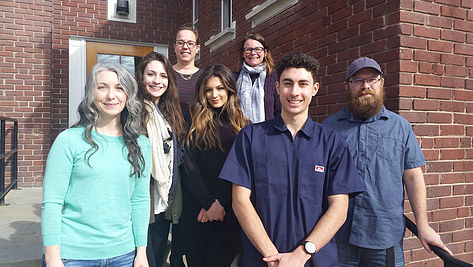
Anthropologists have studied primates and their habits of “social grooming” – when one ape helps another ape clean or smooth its hair, for example — and noted many beneficial health effects. The interaction lowers primates’ blood pressure, heart rate and levels of cortisol, the stress hormone.
“If you watch what apes do when they’re social grooming, they relax. They fall asleep,” said Kathryn Demps, an assistant professor of anthropology.
Now Demps, along with Kristin Snopkowski, an assistant professor, and a team of undergraduate researchers in the Department of Anthropology and the Endocrinology of Social Relationships Lab, want to study how social grooming affects humans.
While a few recent studies have focused on the health benefits of other kinds of physical interaction, including massage and hugs, none has studied social grooming, said Demps.
Boise State researchers want to be the first.
The Department of Anthropology is seeking volunteers to participate in a pilot study to better understand the mechanisms behind this social behavior. During the experiment, volunteers will take a short survey, engage in a “mildly stressful” task, like solving a math problem in front of a group, to raise cortisol levels. After that, they will either brush their friend’s hair, or have their own hair brushed. Researchers will measure cortisol before and after the brushing, and also will check blood pressure and heart rate. The session will take about an hour.
The Boise State researchers are starting their project with pairs of female volunteers who are friends, ages 18-50.
Their reasoning, “There’s a lack of research on women, and on women’s friendships,” said Demps.
There is an age limit because menopause can affect cortisol reactivity in women. The researchers hope to gather data from other kinds of pairs, including different gendered friendships, romantic relationships and others, in the future.
“When we think about holistic health, social relationships matter. Like with all other primates, we expect to find that a few minutes of social care can decrease stress and improve well-being. We want to understand why and how that happens across all types of human relationships,” said Demps.